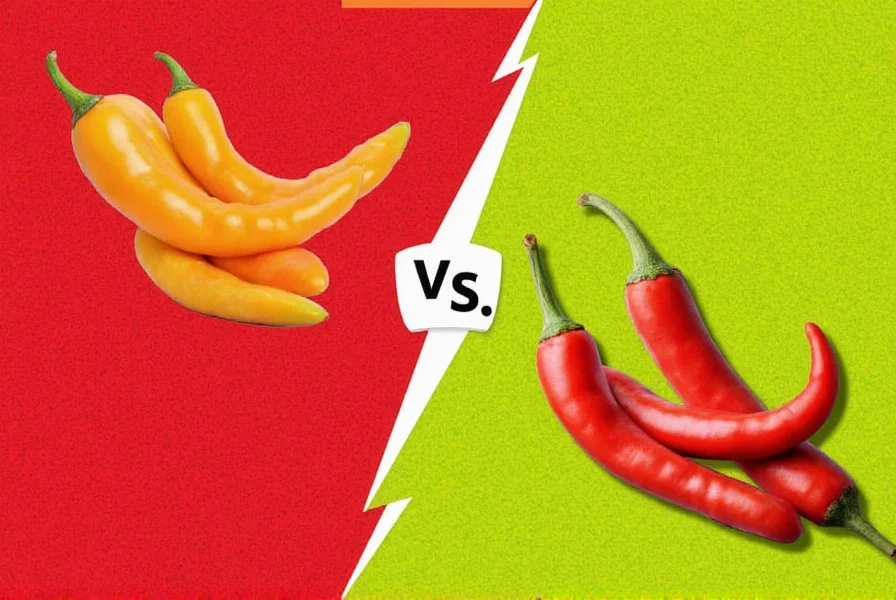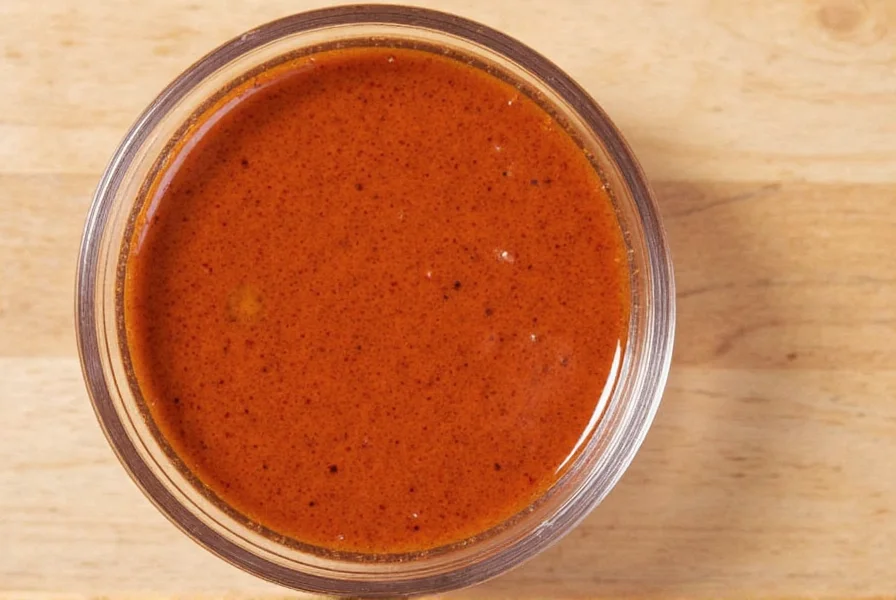Guajillo sauce is mildly spicy, with a Scoville Heat Unit (SHU) range of 1,500–4,000. This places it below jalapeños (2,500–8,000 SHU) and far below habaneros (100,000+ SHU), making it an excellent choice for those seeking subtle heat without overwhelming spice. Below, we'll explore its flavor profile, cooking uses, and how it compares to other peppers.
Key Takeaways
- Mild heat level (1,500–4,000 SHU)
- Smoky, fruity flavor with earthy undertones
- Versatile for tacos, marinades, stews, and more
- Perfect for beginners and spice-sensitive palates
Table of Contents
- What is Guajillo Sauce?
- How Spicy Is Guajillo Sauce?
- Flavor Profile: More Than Just Heat
- Uses in Cooking: When and How to Use It
- Buying Guide: Picking the Best Guajillo Sauce
- Frequently Asked Questions (FAQ)
- Conclusion: Embrace the Guajillo Glow
What is Guajillo Sauce?
Guajillo sauce is made from dried guajillo peppers, which are native to Mexico. These slender, reddish-brown chilies are known for their smoky depth and earthy undertones.

When turned into sauce, guajillo peppers are rehydrated, blended with spices like garlic, vinegar, and sometimes tomatoes, and then simmered to create a rich, complex base used in countless dishes — from enchiladas to marinades.
How Spicy Is Guajillo Sauce?
So, finally, the moment you’ve all been waiting for: how hot is guajillo sauce?
| Pepper / Sauce | Scoville Heat Units (SHU) |
|---|---|
| Guajillo Pepper | 2,500 – 5,000 SHU |
| Guajillo Sauce | Varies by brand, typically around 1,500 – 4,000 SHU |
| Jalapeño Pepper | 2,500 – 8,000 SHU |
| Hatch Green Chile | 1,000 – 10,000 SHU |
| Habanero Pepper | 100,000 – 350,000 SHU |
| Ghost Pepper | Over 1 million SHU |

As you can see, guajillo sauce falls comfortably on the mild-to-medium side of the spice spectrum. It’s spicier than a bell pepper (which has zero SHU), but nowhere near the nuclear levels of habaneros or ghost peppers.
If you're new to spicy food or prefer your meals more on the mellow side, guajillo sauce is a great option. You’ll get that zesty kick without the full-blown inferno in your mouth.
Flavor Profile: More Than Just Heat
Now here’s the real secret: guajillo sauce isn’t just about the heat. Its flavor is a beautiful symphony of:
- Smoky sweetness
- Mild earthiness
- Teeny bit of tang
- Faint berry-like notes
Uses in Cooking: When and How to Use It
Guajillo sauce might be mild, but don’t underestimate its power in the kitchen. Here are some delicious ways to use it:
Tacos & Enchiladas
Slather it on tacos al pastor or pour it over cheesy enchiladas before baking. It brings everything together with a soft, smoky warmth.
Marinades
Mix guajillo sauce with lime juice, garlic, and olive oil for a killer chicken or pork marinade. Let sit for a few hours and grill for an instant fiesta.
Stews & Braises
Add a splash to slow-cooked stews or braised meats. It enhances richness and adds a subtle layer of spice that won’t overpower the main ingredients.
Eggs
Spice up breakfast with a drizzle over scrambled eggs or shakshuka. Yes, really!
DIY Hot Sauces & Salsas
Use it as a base and blend with other hotter peppers (like chipotle or serrano) if you want to crank up the heat.
Buying Guide: Picking the Best Guajillo Sauce
Ready to stock your pantry with guajillo sauce? Here’s what to look for when shopping:
Top Brands & Products
| Brand | Features | Pros | Cons | Best For |
|---|---|---|---|---|
| La Costeña Guajillo Salsa | Mild, balanced, ready to use | Authentic taste, widely available | Limited heat for advanced spice lovers | Beginners, taco nights |
| Sabrosa Guajillo | Chunky texture, natural ingredients | Great for dips and salsas | Thicker consistency may need thinning | Dips, tostadas, empanadas |
| Don Julio Guajillo | Bold flavor, slightly higher heat | Versatile for both cooking and dipping | Can be harder to find | Cooking enthusiasts, flavor seekers |
| Taco Bell Diablo Sauce | Commercial version inspired by guajillo | Spicier, fun twist | Less authentic, more processed | Fast food lovers, adventurous eaters |
What to Look For:
- Natural Ingredients: Avoid artificial preservatives or flavors. Real = better.
- Heat Level: Check labels for heat indicators (mild, medium, etc.).
- Texture: Do you want smooth or chunky? Choose accordingly.
- Packaging: Glass bottles preserve flavor better than plastic.
Frequently Asked Questions (FAQ)
Is guajillo sauce spicy?
Yes, guajillo sauce is mildly spicy, registering between 1,500–4,000 Scoville Heat Units (SHU). This places it below jalapeños (2,500–8,000 SHU) on the heat scale, making it approachable for most palates while still offering a gentle warmth. It’s ideal for those who enjoy subtle heat without overwhelming spice.
Is guajillo sauce the same as red chili sauce?
Nope! While both are red, guajillo sauce is specifically made from dried guajillo peppers, giving it a distinct smoky and fruity flavor. Regular red chili sauce can be made from various peppers and may lack the depth of guajillo.
Can I make my own guajillo sauce?
Absolutely! Simply soak dried guajillo peppers in hot water, blend with garlic, vinegar, salt, and maybe a tomato, then simmer until thickened. Strain and enjoy!
Is guajillo sauce vegan?
Most versions are vegan-friendly. Just check the label to ensure no animal-derived ingredients were added.
How long does guajillo sauce last?
Store-bought guajillo sauce can last up to a year unopened. Once opened, refrigerate and use within 6 months.
Conclusion: Embrace the Guajillo Glow
So, is guajillo sauce spicy? Yes, but only mildly. What it lacks in face-melting heat, it makes up for in flavor, versatility, and soulful richness. Whether you’re a seasoned spice pro looking for balance or a curious newbie exploring the world of Mexican cuisine, guajillo sauce deserves a spot in your kitchen.
“Guajillo sauce: not too hot, but always right.”










 浙公网安备
33010002000092号
浙公网安备
33010002000092号 浙B2-20120091-4
浙B2-20120091-4